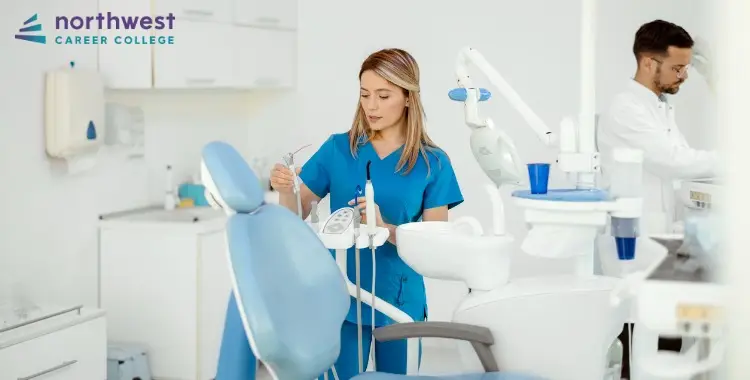Upholding Patient Confidentiality As a Dental Administrative Assistant
- Dental Administrative Assistant
- September 18, 2024
- 1.0k views
- 4 min read

As a dental administrative assistant, one of your priorities will be to ensure patient confidentiality by keeping personal and medical information private and secure. Patient confidentiality is a legal obligation and a basis for trust between patients and healthcare providers. Here are some best practices to guide you in effectively doing so as a dental administrative assistant.
Table of Contents
Importance of Confidentiality
Laws such as the Health Insurance Portability and Accountability Act protect patient confidentiality. HIPAA provides standards for protecting patient information and requires healthcare providers to maintain patient information confidentially. A dental administrative assistant needs to know such laws and their applications for office work.
According to a report by the Ponemon Institute, 90% of healthcare organizations have experienced data breaches in the last two years alone, necessitating vigilance on patient confidentiality to prevent unauthorized access to sensitive information.
Limit Access to Patient Information
One of the best ways to protect patient confidentiality is to limit access to information regarding a patient. That is to say that only those individuals who need to know the information to perform their job should have access to it. In other words, as a dental administrative assistant, you will only be accessing information about a patient for scheduling, billing purposes, or any other reason listed as an administrative duty.
If you work in a shared office space, be mindful of who can visually or auditorily access patient information. Keep computer screens away from public view and avoid discussing patient information in areas others may overhear.
Use Secure Systems and Tools
The technology ensures huge potential in managing patient information; hence, its use must be secured through systems and tools. Ensure all electronic patient records are stored on password-protected systems for security. This helps avoid unauthorized access and ensures that patient information is safe.
Send patient information electronically with an encrypted email or through a secure messaging system when possible. Encryption keeps data safe en route by significantly reducing the possibility of data breaches.
Store Physical Records in a Secure Environment
While many dental offices use electronic records, some maintain physical files. If your office uses paper records, ensure that they are stored securely. Keep patient files in locked cabinets and limit access to only those who need it.
When the time comes to dispose of the old records, do so securely. Before doing so, shred all documents containing patient information to prevent them from falling into the wrong hands.
Be Cautious with Patient Information
As a dental administrative assistant, you may occasionally need to discuss patient information with your fellow staff or the patients themselves. Be highly aware of your surroundings when this is done. Patient information should not be kept in a public area or space where other patients could be present.
Also, when a patient calls to request information over the phone, first identify who is asking for it. This ensures that the information is given to the right individual and not to someone who may use such information for ill intent.
Educate Oneself and Others
Keeping patient information confidential requires a team effort. Be sure you and your peers are informed of the importance of patient confidentiality and the steps taken to protect that confidence. Ongoing training for yourself and others in HIPAA regulations and best practices will keep all parties current on new requirements that may arise.
Conclusion
Your role as a dental administrative assistant is to maintain patient confidentiality. Best practices that can help protect your patients’ privacy and create trust in your dental practice include:
- Limiting access to patient information.
- Using secure systems.
- Be careful when discussing the patient’s details.
Would you like to learn more about the skills you need to become a successful dental administrative assistant? Enroll now at Northwest Career College and participate in one of the best programs in town that offers professional training. Get the opportunity to build up an exciting career.





